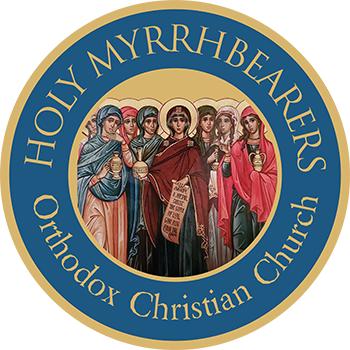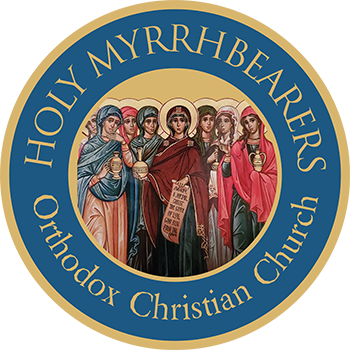September 12, 2021

Matt 19:16-19:26
“What good thing must I do to have eternal life?”
This question of the rich young man to Jesus is echoed time and again from the lips of every person who recognizes both his own mortality and his own ignorance of the life beyond the grave. Every person has some sense that this worldly life is not the end of his existence. There is a general apprehension of the life beyond the grave, as we see by the consistent presence of religious belief throughout every culture and race. This awareness of eternity is also coupled with the stark realization that one day every man and woman must die and face this unknown reality. And not knowing how to prepare for the next life, we look around for someone who can answer the question, “what is the nature of the life beyond the grave and what can I do in this life to prepare myself?” Such is the root of this young man’s question. He knows that there is an eternal existence, he knows that this life provides a way to prepare, and he comes to Our Lord Jesus Christ, a teacher, about this life to ask - what must I do in this life so that in the next life I may be assured of a good place in eternity?
Jesus answers the question by telling the young man first what he already knows. He tells him that he must “keep the commandments.”
From the time of Abraham, the Hebrew people were a chosen people, given the distinct privilege and responsibility of having received God’s revelation to the world. They were the ones through whom first the law was given through the prophet Moses, and they were the ones through whom later the Messiah, Our Lord Jesus Christ, was to come, who would be the One sent by God to deliver the world from its bondage and to proclaim the revelation of God to the world. And so first, our Lord reminds the young man of his heritage - to keep the commandments, to live this life as God had instructed through the law. However this young man responds in an interesting manner, asking, which of the commandments were the essential ones - which were most important in the attainment of eternal life. And so Jesus began to list those commandments which govern our relationships with others - “Thou shalt do no murder, Thou shalt not commit adultery, Thou shalt not steal, Thou shalt not bear false witness, Honor thy father and thy mother” and then he adds the commandment that summarizes all of them and which in one form or another, has become the universal “Golden Rule” by which our relationships with others is governed. “Thou shalt love thy neighbor as thyself.”
Now this question and answer, begins to reflect on a similar conversation that Jesus had with one of the scribes who seeking to test Him asked, “What is the greatest commandment of the law?” At that time, Jesus said to him, “The first and greatest commandment is to love God with all your heart and mind and strength - and the second is similar, to love your neighbor as yourself.” In this case Jesus points out that the most important, the most essential commandment, is to love God with your whole being. The love of others is simply a reflection of the love of God.
However with our rich young man, Jesus is not answering an “academic” question, but rather a pastoral question. He starts not with the theoretical - loving God - but with the practical “What good thing must I do.” My love for others is the expression of my love for God. Since we are creatures of this world and of flesh, we must first learn to express our love towards those who are also flesh and living in this world. In order to love God we must first love our neighbor. And so to lay the foundation for the answer to this young man’s question, our Lord first reminds him of the commandment to love his neighbor as himself. Without this foundation, there was no sense in going further because if we cannot love him whom we see, our neighbor, it is impossible to love Him Whom we cannot see, God.
The young man was glad to hear these words for he had striven all his life to keep these commandments and had indeed learned to love his neighbor in this manner. So also, as many of us, in this world, we hold ourselves to this same standard. We treat others with kindness, we give to charity, we are reasonably law abiding, we don’t hurt others and we respect our elders, we don’t cheat or lie or steal. And when we think about eternal life we take comfort in the fact that we have fulfilled all these commandments. However, the young man knew that these weren’t the only commandments, he knew that there was something more, a greater commandment than loving one’s neighbor. And so he asked the question that many neglect “What do I still lack?”
With this question we come to the core of our salvation. Loving our neighbor is only a reflection of our love for God - in order to truly enter into life, we must keep the first and greatest commandment above all - to love God with our whole being. This commandment sums up the first 4 of the 10 commandments of Moses. These first four commandments concentrate on how we love God. And Jesus sums them up for this young man with a simple application. “Go and sell all that you have, give it to the poor and come and follow Me.”
This is the love of God: to forsake the world, to release your hold upon anything in it, and to do only one thing - to hold onto God.
Does this mean that we all must do exactly the same thing? Well, yes and no. Yes, if you desire to enter into the life that God gives, you must give up whatever it is that holds you to this world and instead embrace God and that which He gives. To refuse to give up anything, to try and “take it with you”, remember no U-Hauls, is to weigh yourself down and to be held back from following Christ. For this young man, because he was wealthy and attached to his wealth, his possessions tied him to the world and his care for his wealth and his love of his possessions competed with His love of God and so he had to leave them behind - this was the application for him, and us today, of leaving the world to follow Christ.
While the pull of our possessions is indeed strong for all of us - there are many things that hold us back that we must relinquish and let go in order to work out our salvation. If not possessions, then what? For some it is the honor of men that we hold to - one’s position in the world: that is the opinion that the world holds about you, your reputation, your credit rating, your social status. And yet it is necessary to become as a little child, foolish in the eyes of the world in order to follow Christ - it is necessary to “go and sell” this in order to follow Christ. Some have even in the Church been called to such an extreme that they were considered to be crazy, insane, homeless wanderers so that they might avoid the trap of maintaining honor and reputation, ‘fools for Christ’.
For some it may be reason and mental ability that holds you to this world. You pride yourself on being rational and are learned and become attached to the knowledge of the world. You love what you know and finding out new things. You seek to understand all things - the acquisition of knowledge is the most important thing in your life. And yet this too can hold you back - to follow Christ is to relinquish the search for worldly knowledge and to instead submit it all to the revelation of all Truth - to the experience of the knowledge of God through Jesus Christ.
For some, it may be our attachment to some person in this world whom we love more than God - a husband or wife, a child, a parent, a sweetheart. And yet did not Christ say, “He who loves father or mother, son or daughter more than Me is not worthy of Me?” In loving others it is necessary to place our love of God first and foremost. This perspective is vital.
For some, it may be some skill or ability or activity that holds us back from God. We are devoted to some activity or pursuit or thrill, to find that the life of Christ can fill and fulfill this activity and bring it to its highest level, we think. But in the end it is that skill, that activity, that pursuit or philosophy that is more important than the life that God gives to it and so it holds us back.
These are only a few examples of worldly “possessions” that hold us back from the life of Christ. None of these things I have mentioned are evil - not possessions, not reputation, not loved ones, not learning, not any exercise of our God-given natural abilities. In fact as followers of Christ, we often find ourselves in possession of these things - however it is our responsibility to use them in the service of God, as a means to live the life of Christ. When we use that which God has given to us for its proper purpose of following Christ, then there is no sin. But when we misuse what God has given to us, then it becomes a barrier between ourselves and God. We must love God first and give up anything that threatens to take His place in our life. We accept what God gives and we become too attached to it, if we cannot bear the idea of God taking it away to give us something else. Think of the righteous Job, who when faced with the loss of all his earthly possessions simply said, "The Lord gives the Lord takes away, blessed be the name of the Lord”. Can you say that!
In the end there is only one thing that is necessary to possess in order to enter the Kingdom of Heaven and that is to possess the life of Christ. That life is already full and complete and rich in and of itself - we need bring nothing of our own to add to it, rather it fills us and completes us and enriches us. All else, our possessions, our reputations, our abilities, even our loved ones, are as nothing in comparison with possessing Christ.
The rich young man went away sad, for he was attached to his possessions and knew now the great struggle that lay before him. The apostles themselves were overwhelmed with the difficulty of the task of setting aside everything for Christ. And so some of us struggle also, however our Lord comforts them and us by reminding us that even in this, our hope does not rest upon ourselves but upon God alone saying, “But Jesus beheld them, and said unto them, With men this is impossible; but with God all things are possible...” (Matthew 19:26, KJV) We need only to turn to Christ, to set our will, desire and hopes on Him and He will provide for us everything else that is necessary to bring us into His Kingdom that we might participate in the eternal life that is His.
(Thank you Fr David)
Comments will be approved before showing up.

